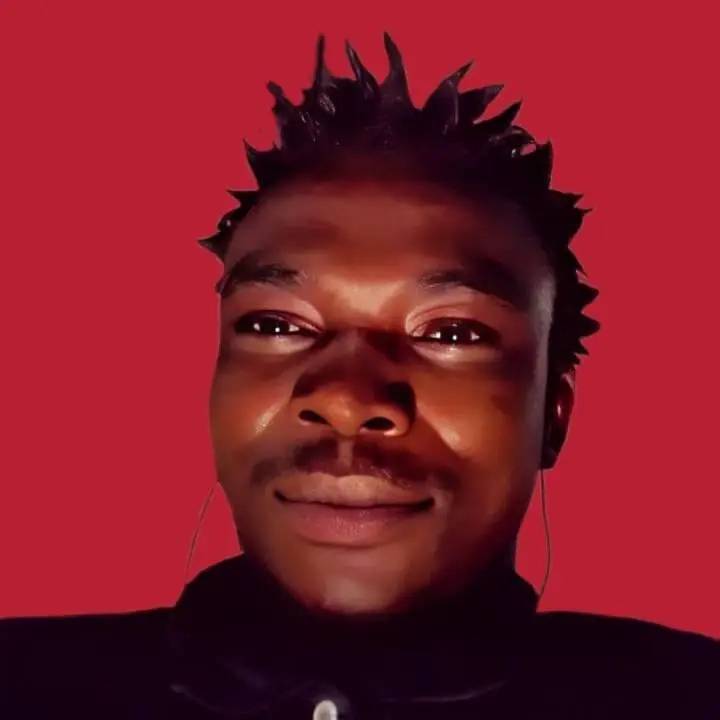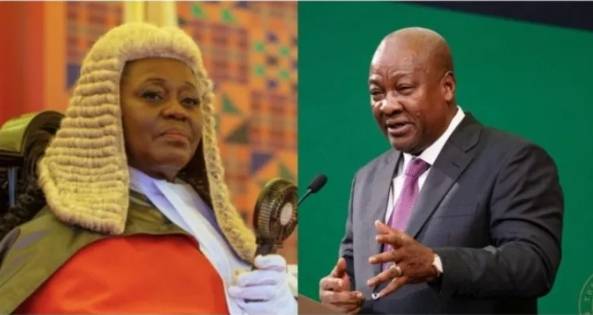The Minister in charge of Government Communication, Felix Kwakye Ofosu, has stated that President’s actions regarding the suspension of the Chief Justice (CJ) have not violated any laws.
In an interview with Thelma Tackie on the GTV Breakfast Show, Mr Kwakye Ofosu noted that critics of the President’s actions have failed to point to any specific infraction of the law that would invalidate the decision made by the Council of State and the President.
He emphasized that all public office holders, including the President, Speaker, Chief Justice, and Ministers, are accountable to the people, as stipulated in the Constitution. The Constitution outlines the procedures for holding these officials accountable.
Regarding the specific case of the Chief Justice, he explained that Article 146 of the Constitution dictates the process for removing the Chief Justice.
This process involves the President consulting with the Council of State to determine whether the prima facie case against the Chief Justice is valid.
Felix Kwakye Ofosu
Felix Kwakye Ofosu
Mr Kwakye Ofosu revealed that three petitions had been received against the Chief Justice, prompting the President and the Council of State to evaluate the claims and consider the Chief Justice’s response. After this process, the Council of State concluded that the Chief Justice was guilty of the offenses alleged in the petitions.
The Minister therefore dismissed criticisms of the process, stating that they are unfounded and lack substance. He expressed confidence that more constructive submissions would be made on the matter.
Below is the full Text of Article 146 of the 1992 Constitution:
Removal Of Justices Of Superior Courts And Chairmen Of Regional Tribunals
(1) A Justice of the Superior Court or a Chairman of a Regional Tribunal shall not be removed from office except for stated misbehaviour or incompetence or on ground of inability to perform the functions of his office arising from infirmity of Body or mind.
(2) A Justice of the Superior Court of Judicature or a Chairman of a Regional Tribunal may only be removed in accordance with the procedure specified in this article.
(3) If the President receives a petition for the removal of a Justice of a Superior Court other than the Chief Justice or for the removal of the Chairman of a Regional Tribunal, he shall refer the petition to the Chief Justice, who shall determine whether there is a prima facie case.
(4) Where the Chief Justice decides that there is a prima facie case, he shall set up a committee consisting of three Justices of the Superior Courts or Chairmen of the Regional Tribunals or both, appointed by the Judicial Council and two other persons who are not members of the Council of State, nor members of Parliament, nor lawyers, and who shall be appointed by the Chief Justice on the advice of the Council of State.
(5) The committee appointed under clause (4) of this article shall investigate the complaint and shall make its recommendations to the Chief Justice who shall forward them to the President.
(6) Where the petition is for the removal of the Chief Justice, the President shall, acting in consultation with the Council of State, appoint a committee consisting of two Justices of the Supreme Court, one of whom shall be appointed chairman by the President, and three other persons who are not members of the Council of State, nor members of Parliament, nor lawyers.
(7) The committee appointed under clause (6) of this article shall inquire into the petition and recommend to the President whether the Chief Justice ought to be removed from office.
(8) All proceedings under this article shall be held in camera, and the Justice or Chairman against whom the petition is made is entitled to be heard in his defence by himself or by a lawyer or other expert of his choice.
(9) The President shall, in each case, act in accordance with the recommendations of the committee.
(10) Where a petition has been referred to a committee under this article, the President may-
(a) in the case of the Chief Justice, acting in accordance with the advice of the Council of State, by warrant signed by him, suspend the Chief Justice;
(b) in the case of any other Justice of a Superior Court or of a Chairman of a Regional Tribunal, acting in accordance with the advice of the Judicial Council, suspend that Justice or that Chairman of a Regional Tribunal.
(11) The President may, at any time, revoke a suspension under this article.



